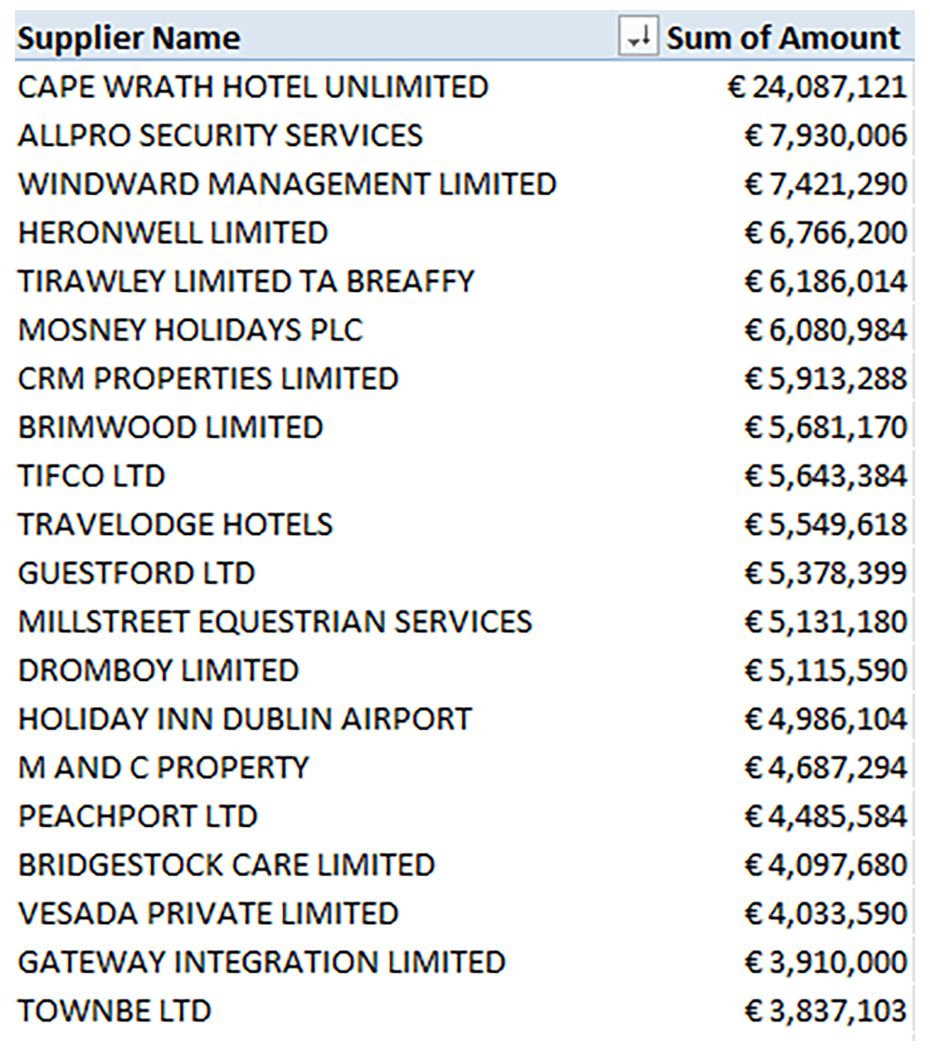As Gript highlighted over the weekend, the amount of money being drawn down from the state in payments for the provision of accommodation and other services for asylum applicants and refugees from Ukraine are truly staggering.
The latest figures released by the Department of Children, Equality, Disability, Integration and Youth (DCEDIY) on Friday show that a total of €484,395,208 was paid out in just the third quarter of 2023, between July and September
€168,482,023 was paid out to providers of accommodation to those claiming to be refugees under International Protection.
A further €315,913,186 went to providers of accommodation and other services for Ukrainians who come under the category of Temporary Protection.
The total of payments for the first nine months of 2023 came to more than €1 billion. The state is now paying out close to €4 million each day to provide for people claiming asylum, and that is just in direct costs related to accommodation under state contracts.
It takes no account of all the other costs involved including substantial social welfare costs.
While the department spent a total of €186 million on accommodation and related costs for asylum seekers and refugees in 2021, that cost shot up to €830 million the following year. 2022.
The first 6 months of 2023 saw the state spend €855 million on asylum and migrant accommodation.
The spend of €484 million from July to September suggests another rise in costs in that period again.
The top twenty earners in providing asylum and migrant accommodation over the three months from July and September were:

There are hundreds more providers earning sums varying from €30,000 to millions of euro each quarter. Gript will be delving deeper into these figures and the rest of the payment details over the coming days.
As the Sunday Business Post pointed out yesterday, obtaining details on the companies who have benefitted from all of this – from some of the main beneficiaries to those further down the food chain – is not easy.
The main reason for this is that a large number of the companies who are leasing property to the state are registered as unlimited companies. That means that they are not obliged to provide detailed information which prevents anyone examining the payments – and such companies account for several hundred million in the amounts drawn down – and it is impossible to know who the actual owners of the companies are.
There is also the fact that some of the largest companies involved are owned by overseas corporations. That is surely an unhealthy situation for any economy or society to find itself in – particularly when the hotels in question are being taken out of the tourist market which has a negative impact on the economy as a whole and in particular on towns and villages which are greatly dependent on the business generated by visitors.